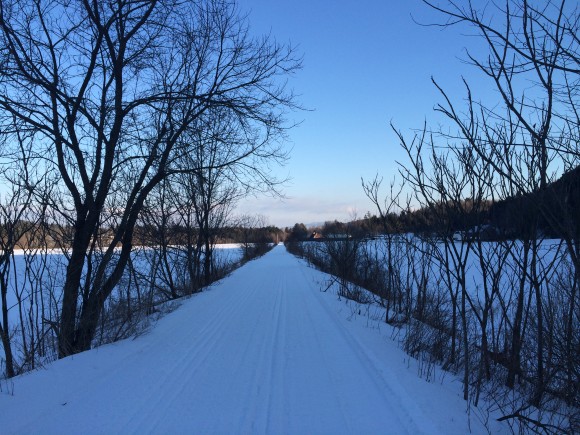 I’m on the other side of the Ides of March, post-Purim (the holiday of reversals), and inhabiting another side of myself. I am two weeks into my first writing residency, with two weeks to go. The first week here at the Vermont Studio Center was long and deep. I started writing immediately on the first day (even at the airport on the way from Philadelphia), and kept up a good pace for the first few days. The experience has been a big adjustment, an inversion of my everyday life at home, where there’s always something else to do other than focus on my poetry. Here poetry comes first, and that’s thrilling and frightening.
I’m on the other side of the Ides of March, post-Purim (the holiday of reversals), and inhabiting another side of myself. I am two weeks into my first writing residency, with two weeks to go. The first week here at the Vermont Studio Center was long and deep. I started writing immediately on the first day (even at the airport on the way from Philadelphia), and kept up a good pace for the first few days. The experience has been a big adjustment, an inversion of my everyday life at home, where there’s always something else to do other than focus on my poetry. Here poetry comes first, and that’s thrilling and frightening.
I enter my writing studio after breakfast and I expect to just walk straight into the deepest parts of myself. Eileen Myles was a visiting writer here the first week and talked about the writing process as similar to when a dog circles and circles trying to find the perfect position in which to get comfortable. That’s how I feel when I walk into the studio. I pace, move books around, fill my water bottle. Finally I sit down in the velvet green armchair by the window overlooking the frozen lake. I stare out the window and start to feel my mind move. Sometimes I fall asleep. Sometimes I pick up a book and read and a sentence injects itself in me and I grab my journal and start a new poem. I get up for lunch. I return. I go to yoga or to chop vegetables for my kitchen duty. I eat dinner, return to the studio at night.
I have moments where I’m worried I haven’t written enough each day––that old capitalist impulse toward mass production. But artistic production is much wider and deeper; poems don’t take shape on an assembly line. They inhabit the moments in between the actual writing of poems. It’s true that you have to show up for the muse. You have to treat the process as primary, as the first thing you’re responsible for. So that even when you’re not writing, the poems brew. You learn to be gentle with them. You learn to be okay with just sitting there for a while. The longer you do it the more normal it feels, and like animals, the poems begin to feel more comfortable emerging from the underground.
It’s kind of painful at first to transition to this way of working––you’re afraid you won’t make anything good, that you’re wasting time. You want to go home, be with your partner, go to a party, watch a movie. But the poems are spirit animals walking alongside you, sometimes going off on their own, but always returning. You have to feed them. You have to make it your full-time job.